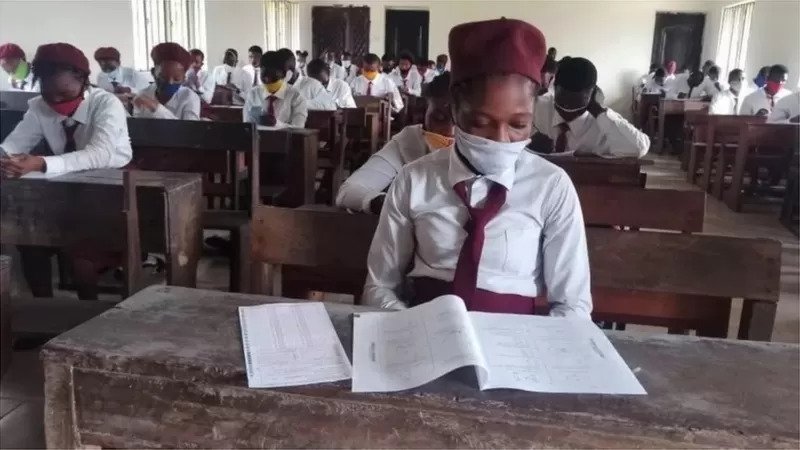West Africa Examination Council 2022 WASSCE wil see millions of students across Nigeria write the exam later this year.
The exam officially starts May 9 and will finish on June 24, 2022 according to the time table released by WAEC.
“The candidates will sit an exam in 76 subjects, made up of 197 papers, while about 30,000 teachers will participate in the examinations as supervisors.” Head of Nigeria National Office (HNO), WAEC, Patrick Areghan, told reporters at the Guardian.
WAEC results is what universities and polytechnics use to determine who they will admit to their school in some parts of West Africa.
So if you are writing WAEC this year or know someone who is, here are the offenses you need to know about to avoid trouble with the exam join body.
WAEC offence list
- Candidates that carry books or phones into the examination hall is an offense
- To insult or assault any examination official is an offense
- To swap scripts inside examination hall is an offense
- To replace your answer scripts with another one during or after the examination is an offense
- Impersonation, this means to write the exam for someone else is an offense
- To take part in mass or organized cheating in the exam hall is an offense
Other offences are highlighted inside the Council Regulations & Syllabuses handbook.
Why does WAEC cancel some results?
What is WAEC?
The West African Examination Council, is an international exam for Senior secondary school students that takes place every year. And at the same time across five countries that are members of the Council.
The countries that write WAEC are, Gambia, Ghana, Liberia, Nigeria, and Sierra Leone, and they all use the same International Timetable.
Waec was established in 1952. According to information on its website, the vision of the West African Examinations Council is to be a world-class examining body that adds value to the educational goals of its stakeholders.
WAEC is the pioneer West Africa examining board that was established by law to set the exams that is required in the public interest of the English-speaking West African countries, to conduct the examinations and to award certificates that are comparable to that of equivalent examining authorities internationally.
According to their mandate, the council is expected to assist in the development of sound education.

